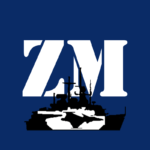Continuing with our coverage of the International Fair FIDAE 2024, from Zona Militar we had the opportunity to interview the Peruvian Air Force Colonel Sandro Bravo Ullman, current executive manager of the company Servicio de Mantenimiento del Perú SAC.
Founded in 1933, SEMAN S.A.C. is a state-owned company attached to the Ministry of Defense dedicated to the manufacture, repair and aeronautical maintenance of civil, commercial and military aircraft.
The following is the interview:
-ZM: Thank you very much for the interview and the opportunity. Before we start, for the general public, if you would have to define SEMAN, how would you define it and what is the company’s objective?
-SB: SEMAN S.A.C. or Servicio de Mantenimiento de Peru S.A.C. is an MRO company that provides maintenance, repair and overhaul of aircraft and aeronautical components. We have three lines of business in order of importance. The first line of business is the maintenance of commercial aircraft, we are talking about the Boeing 737, 737 classic and 737 NG new generation. We also perform maintenance on Boeing 767 aircraft and we are in a prospective to be able to perform major maintenance on Boeing 777 and Airbus 319-320 aircraft. The second line of business in order of importance is the maintenance of landing gear, which involves the repair and overhaul of landing gear and landing gear. Here this line of business has different edges because we also perform maintenance on Boeing aircraft, but we do not yet have the capacity to perform maintenance on the landing gear of the Airbus aircraft line.
-ZM: Is this a future project that the company wants to undertake?
SB: This is a short-term project, as is the project to have the capacity to perform maintenance on Boeing 777 and Airbus 319320 aircraft. And the third line of business is the manufacture of aeronautical parts and metal-mechanical parts. This line of business was really boosted with the acquisition of the Korean KT 1 aircraft. One of the offset of this acquisition was precisely to boost and increase the capacity in the manufacturing of aeronautical parts.For this purpose, the maintenance service has three-axis, four-axis and five-axis numerical control machines that allow us to speed up the manufacturing of aeronautical parts.These are the three lines of business that SEMAN Peru SAC currently has.
-ZM: Proceeding with the third line of business, which is more related to defense, Peru currently has a kind of strategic alliance with South Korea, not only in the aeronautical field, but also in the naval field, some in the land field. In the case of SEMAN, what did it mean in terms of investments, knowledge, how did this strategic association have a positive impact, if I may use that expression?
-SB: Korean Aerospace Industries is an aircraft manufacturer. It’s in the top five aircraft manufacturers in the world. And we are, it’s true. The benefit that the Air Force received, in this case the maintenance service, was a technological transfer to be able to co-produce the KT1 aircraft in Peru, something that had not been done before in the Maintenance Service. And this technological transfer was not only oriented to train our technical and professional personnel, but it was also oriented to acquire equipment and machines.
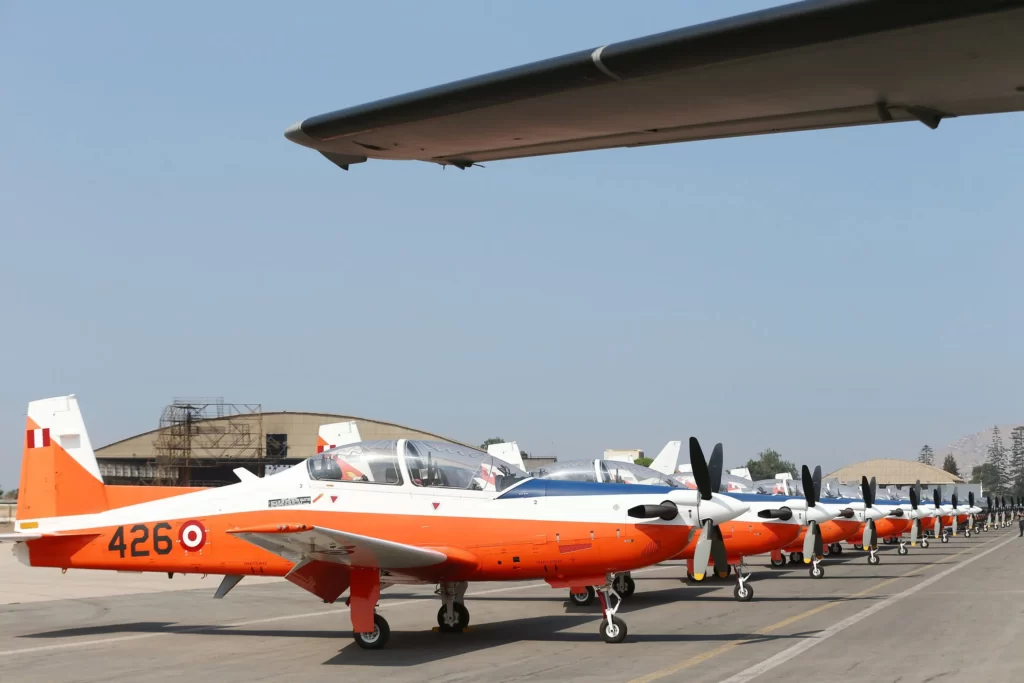
As I mentioned a moment ago, we have numerical control machines of Korean origin that have been part of this offset. With this, the Maintenance Service was able to have the capacity to manufacture aircraft parts; precisely the parts for the assembly of the KT1 aircraft were manufactured at SEMAN. And I would like to make a comment here, the manufacturing of parts is a very technical industry, very specialized and requires specialized certifications to be able to have that capacity. And SEMAN currently has AS 9100 certification, which allows SEMAN to be at the level or standard of aircraft manufacturers anywhere in the world.
-ZM: You are looking for the future, as one more project, to increase this partnership with each industry, taking into account that also the South Korean company is investing in several interesting projects to equip first the South Korean armed forces. Would you be looking for a partnership in other projects or expand even more the line of basic trainers?
-SB: In the case of parts manufacturing, which is our third line of business, SEMAN currently has a memorandum of understanding signed with KAI so that in the near future the Maintenance Service can produce different parts of the aircraft that KAI manufactures.This would make us a supplier of aeronautical parts to an aircraft manufacturer of KAI’s stature.
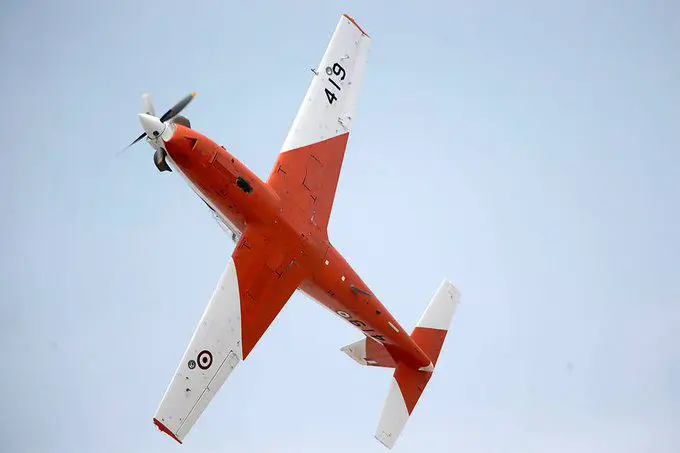
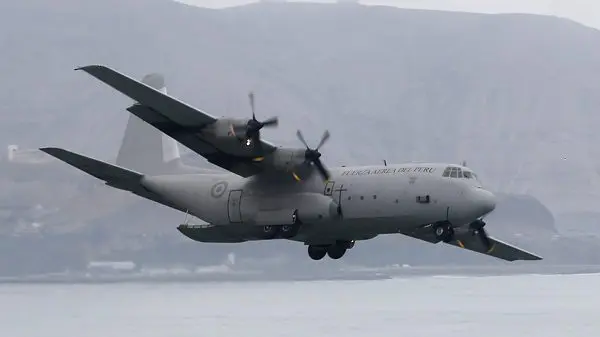
-ZM: What is the expectation for growth in terms of finding customers, whether commercial or military? Taking into account that many military forces operate Boeing 737 aircrafts for passenger and cargo transportation, both the Peruvian Air Force and, for example, the Chilean and Argentinean Air Forces. Can you offer these services to other Armed Forces in the region?
-SB: Yes, precisely within the corporate purpose of the company, one of the objects is the development of the aeronautical industry and to carry out major maintenance to aircraft of the Air Force and armed forces of other countries. So, SEMAN is currently performing a series of services through specific agreements with the Air Force to perform major maintenance on medium transport aircraft such as the Hercules L100-20 that operate in the Peruvian Air Force.
-ZM: Does this also extend to those that recently acquired Spain, or only the civilian variant of the Hercules?
-SB: This agreement for now is oriented to the L 100-20 line. The KC-130 line is being carried out at the FAP Maintenance Service. However, this does not exclude the possibility that in the near future we will also be processing the maintenance of aircraft of the Hercules line in general, whether it is the L100 line or the KC-130. And looking at a company perspective, our vision goes beyond the country, we want to offer this major maintenance service to Hercules aircraft from neighboring countries in the region.
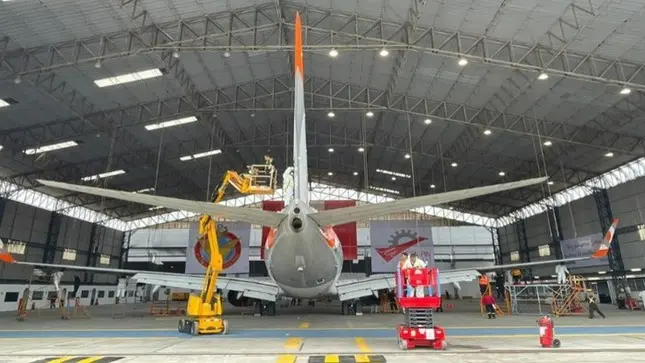
As a company we have a prospective for each business unit. In the aircraft business unit, we want to be able to reach the capacity to perform major maintenance on Boeing 777 and Airbus aircraft. This will be achieved by having the appropriate infrastructure. For this we need to grow in hangars, and we want to position ourselves in Lima’s international airport, where we have a UFA, a hangar with the capacity to perform maintenance on two 737 aircraft. We also want to have the capacity to process larger jobs such as the Boeing 777 in a hangar in Callao. We want to grow in the international market by providing services to European operators with the Airbus line.
In the manufacturing area, our project with the Koreans will allow us to produce parts in series and grow in the aeronautical industry. This will give us the capacity to produce an aircraft ourselves.
We thank the Peruvian Air Force Colonel Sandro Bravo Ullman for his time and predisposition.
*Coverage by Juan José Roldan from Santiago de Chile.
You may also like: ZM at FIDAE – The F-22 Demo Team showcased the capabilities of the U.S. Air Force’s stealth fighter in the skies of Santiago, Chile

